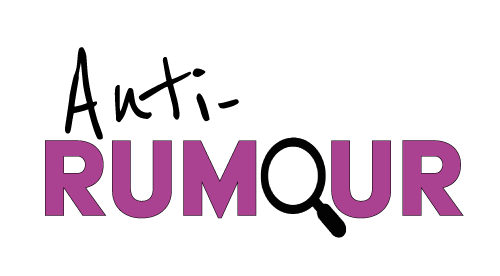Anti-Rumour

Project
The Anti-Rumour project is funded by the Erasmus+ program, and is implemented with project partners from Cyprus, Greece and Spain. It raises awareness regarding fake news and conspiracy theories with a focus on disinformation surrounding environmental awareness and social inclusion. The project addresses young people in particular, who are more familiar with and present in social media and can quickly transform into active media producers rather than passive media consumers.
Never before has it been so easy for any citizen or association to express their own opinions or create and disseminate news. And while on one hand, the ability to do so is an expression of our right for freedom of speech, on the other hand, this “power” might debilitate or even threaten rights of certain communities if used irresponsibly. The challenges that our global society has been facing in the last years have shown us more than once how misinformation can negatively affect important issues like climate change, immigration and public health policy - resulting in distrust, weakening engagement in democratic processes, political institutions and weakening democracy itself. Therefore, the discernment of fake news and conspiracy theories becomes crucial to have well-informed citizens and to strengthen democracy and make it more resilient.
Aim of the project
Anti-Rumour seeks to provide citizens, particularly young people, with tools to analyse and differentiate truthful news from any kind of misinformation. It will help improve trust in democratic institutions, protect democracy from multidimensional threats and strengthen European values such as inclusion, tolerance, justice, solidarity and non-discrimination.
During the two-year timespan, the project partners will create
- A guidebook which aims at developing an understanding of the relationship between conspiracy theories and fake news by combining theoretical and historical material
- A toolkit consisting of up to 15 online tools that can help online users identify and learn about conspiracy theories, fake news and their background
- A serious game that focuses on assessing learners’ skills and their ability to identify messages they came across in different types of media, analyse them objectively and understand what kind of information they are receiving
- A Learning Module consisting of four lessons along with their lesson plan; the module will teach youth organizations and youth workers how to use the different project materials
Stiftung Digitale Chancen coordinates the project and is responsible for the creation of the digital toolkit.
Follow Anti-Rumour on Social Media
Do you want to stay up-to-date on the project's results? Follow Anti-Rumour on Twitter and Instagram!
By implementing this project, we are contributing to the realisation of the following United Nations Sustainable Development Goals:





Project partner
- Challedu, Greece
- Citizens in Power (C.I.P.), Cyprus
- Dramblys, Spain
- Stiftung Digitale Chancen (SDC), Germany - coordinator
Funding program
Erasmus +
![[Translate to EN:] Grafik mit der Aufschrift "Anti-Rumour Workshop-Module", darunter vier Symbole: eine Gruppe von Menschen in einer geöffneten Hand; eine Weltkugel, aus der eine Pflanze sprießt; Eine Pyramide mit einem Auge in der Mitte; verschiedene digitale Medien wie Laptop und Handy.](/fileadmin/_processed_/8/2/csm_AR_Workshopmodule_Titel_ee9873ecc9.png)



![[Translate to EN:] [Translate to EN:]](/fileadmin/digitale-chancen/images/projektteaser/teaser-project-cyberme.svg)
![[Translate to EN:] [Translate to EN:] DiKomBi Projekt presentation, CC0 by Toa Heftiba](/fileadmin/_processed_/4/f/csm_DiKomBi_Projekt_Foto_von_toa-heftiba_677x449_ddd04f3168.jpg)